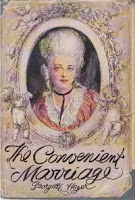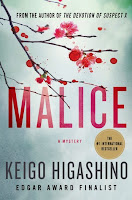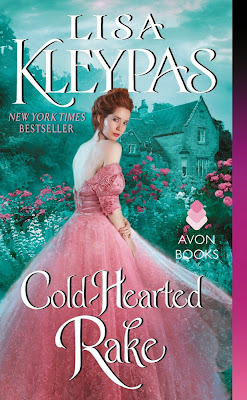This parcel of mini reviews features a contemporary romance set in New Zealand, a classic Regency, and a mystery/thriller from Japan. Enjoy!
Artistic License by Elle Pierson
Art student Sophy is so distracted by a museum security guard with a face "Picasso would love" that she doesn't duck out of the way in time to avoid colliding with his impressively muscled torso. When she asks him to model for, Mick feels like he can't say no, and he's not sure he wants to. Will these two crazy kids get together???
I'll readily admit that I have a weakness for any book involving artists or art. Sometimes this leads me astray, but in this case it didn't. While Artistic License isn't a perfect novel–the clothing descriptions in the first chapter were enough to drive me bonkers; the author apparently has an obsession with jackets because I literally knew what kind of jacket every single character was wearing, or had ever worn–the story drew me in and, for the most part, I enjoyed reading it.
Sophy is an Anastasia Steele type of character: young, uncoordinated, shy, awkward, and not very confident. Normally this would be eye roll inducing, but here it felt authentic, possibly because Sophy is also quirky and accepting of herself as she is. Mick is slightly less well-drawn, but I loved the details in his mannerisms that gave the book a well-needed dash of realism.
This is one of those stories where the hero/heroine don't hook up for a long ass time for no good reason, and there were some niggling little details that bothered me, but overall Artistic License is a good–not great–read. If you're at loose ends searching for a romance, you could do worse.
The Convenient Marriage by Georgette Heyer
I've tried to read a couple of Georgette Heyer books in the past and pretty much gave up on that. But then I saw a post on Angieville about how she loved The Convenient Marriage, and one of the commenters said the audiobook version was narrated by Richard Armitage. RICHARD ARMITAGE, said my brain. And, lo and behold, said audiobook was on Hoopla. I immediately started listening to it and I'm glad I did, because it's a hella entertaining coming-of-age story full of adventure, duels, and social contretemps.
The Convenient Marriage is kind of like Pride & Prejudice, if Mary Bennet had decided to take matters into her own tentacles and propose to one of Jane's wealthy suitors. Horatia *seems* like she would be a shy, uncertain young woman, because of her stutter. But in fact she's feisty and a grab-life-by-both-hands sort. She's self-conscious about her stutter but still insists on going out in society and doing what she wants, which also makes her seem really brave.
Lord Rule is a bit more of a caricature, all laconic and superior all the time (except when he gets really pissed off), but whatever. It works here. And there are many other characters and a ton of stuff happening in the book that has nothing directly to do with the "romance" between Rule and Horry, so much so that you could almost turn this book into an entire TV series!
Finally, I really have to mention Armitage again, because he is an AMAAAAAzing narrator. Every character had his or her own voice and it was hard to believe one person could embody so many different personalities and accents. Honestly the best audiobook narrator I've ever listened to; I will definitely be listening to every other audiobook he's ever worked on.
Highly recommended!
And now for something completely different...
Malice by Keigo Higashino
I received Malice as a birthday (or Christmas?) present, and honestly didn't know what to expect from it. It's not the type of book I would normally pick up on my own: the summary makes it sound like a dark and gritty police procedural, which is not my jam at all. After reading it, I would still say it's not "my type" of book. But because the writing is so fantastic, Malice transcended its genre and completely won me over.
The story is about two writers and their books: one, Kunihiko Hidaka, is a bestselling author; the other, Osamu Nonoguchi, is a literary unknown and Hidaka's childhood friend. When Hidaka's body inside his locked office, Nonoguchi decides to write about the investigation, much to the consternation of Detective Kaga.
I wish I could say more, but I don't want to ruin the twists and turns for you. I'll admit that the last twist went way beyond the bounds of plausibility and sense-making for me, but it was a thrilling ride getting there nonetheless. I can definitely see why Higashino is one of Japan's bestest-selling authors: his writing is compulsively readable. This is the type of novel you want to consume in great big gulps because it grabs hold of your imagination almost immediately. I'll definitely be on the lookout for more of Higashino's books in the future!
Discus this post with me on Twitter, FaceBook, Google+ or in the comments below.




























